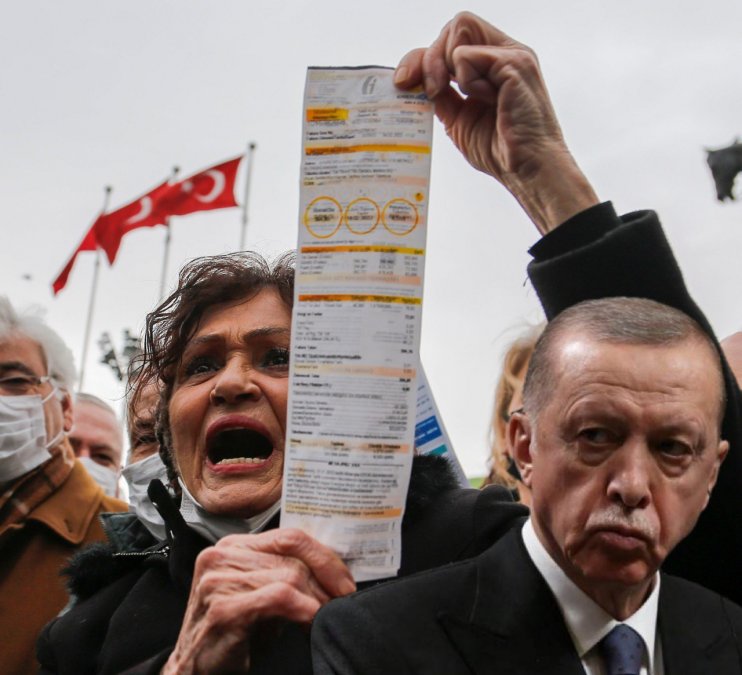The Achilles’ Heel of Erdogan’s Economy – Part One
According to Iran Gate, the Achilles’ heel of Erdogan’s economy is evident as the Turkish elections have gone to a second round. Contrary to the claims made by his supporters, Recep Tayyip Erdogan could not defeat Kemal Kilicdaroglu and secure more than 50% of the votes. Many observers believe that the reason for the decline in Erdogan’s popularity and that of the Justice and Development Party is the economic recession and the worsening living conditions for the citizens of this country over the past three years.
On May 28, 2023, Erdogan and Kilicdaroglu face a fierce battle for power. Experts believe that the Justice and Development Party has a much better chance of winning in the second round compared to the opposition. However, perhaps in 2018 when another election was held and the Justice and Development Party decisively won, no one could have imagined that four years later, Erdogan would struggle so much to defeat the leader of the opposition party that the election would go to a second round.
But what is the reason for this event, and why has the popularity of the Justice and Development Party and its leader significantly declined among various segments of Turkish society? Iran Gate, in a two-part series, has attempted to answer this important and key question and provide an analysis of the political alignments in the Turkish elections.
The Roar of the Inflation Beast Heard from Dolmabahce
After the discovery of the COVID-19 vaccine gradually managed to contain the flames of the Corona pandemic, large and small economies around the world slowly began to take actions to repair the damage done to the economic framework. The Turkish government, led by Erdogan, also adopted new policies to compensate for the losses caused by the shutdown of industries and businesses. However, these policies, which seemed strange and unscientific to Turkish economists, not only failed to solve the country’s stagnant economy but also caused Turkish citizens, who had not experienced severe inflation for over twenty years, to once again grapple with serious livelihood issues.
What is the Reason for Islamists’ Hostility Towards Modern Banking?
Among these policies was the suppression of interest rates with the aim of attracting investors to the production sector. This idea, which had been noticeable in Erdogan’s occasional statements for years and rooted in his Islamist inclinations and those of the Justice and Development Party, was now supposed to save Turkey’s pandemic-stricken economy from recession and collapse. However, this policy faced strong reactions from economists and economic activists in the country.
According to these experts, the policy of suppressing interest rates not only could not direct capital towards production but also increased the speed of money circulation and strengthened the grounds for speculation. Despite all this opposition, Erdogan did not back down from his policy and even dismissed three central bank governors. This action occurred while government intervention in monetary and banking policy in Turkey contradicts the principles of the country’s economic management. In any case, Erdogan insisted on his stance, and the interest rate has faced severe suppression to this day.
By examining the ideological foundations of Turkish Islamists, who introduce the Muslim Brotherhood as their origin, it can be understood that there are serious conflicts between this way of thinking and the principles and rules of modern banking. These conflicts become more intense and noticeable when it comes to the issue of interest rates.
As mentioned, Islamist movements, citing the Quran, claim that interest rates are a form of usury and are forbidden in Islam. Therefore, factions of the ruling party in this country have repeatedly criticized Erdogan’s inaction against Turkey’s monetary policy, which was based on the mainstream economy.
The Resentment That Troubled Erdogan
Erdogan had been pursuing the implementation of such policies within Turkey’s economy for years, but the right opportunity never presented itself. However, the Corona pandemic and the shutdown of industries and productive sectors of the world’s economies provided a good excuse for the leader of the ruling party in Turkey to win over his Islamist and fundamentalist allies even more.
In any case, Erdogan intervened in monetary and banking policy and put the suppression of interest rates on the agenda. He and the proponents of this idea expected that this would cause the dormant funds in banks to line up for entry into the production sectors and investment in the productive pillars of Turkey’s economy. However, what happened was exactly the opposite of what Turkish Islamists expected, because the uncertainty caused by the Corona pandemic increased investment risk and, along with rising tensions with the United States, severely reduced the attractiveness of investment in production.
As a result, the dormant funds and deposits in banks poured into financial markets, and speculative activities gained significant strength. This led to an unprecedented and excessive increase in the speed of money circulation in this country and detonated the inflation time bomb in Turkey. It is here that it is said Erdogan’s ideological and religiously influenced view of the economy backfired on him and his government, and even low-income Muslim groups, who were traditional supporters of the Justice and Development Party, turned away from him and his party.
In the next part, the consequences of Erdogan’s adoption of this policy and the effects of economic tensions on Turkey’s electoral battles will be examined.
English
View this article in English

